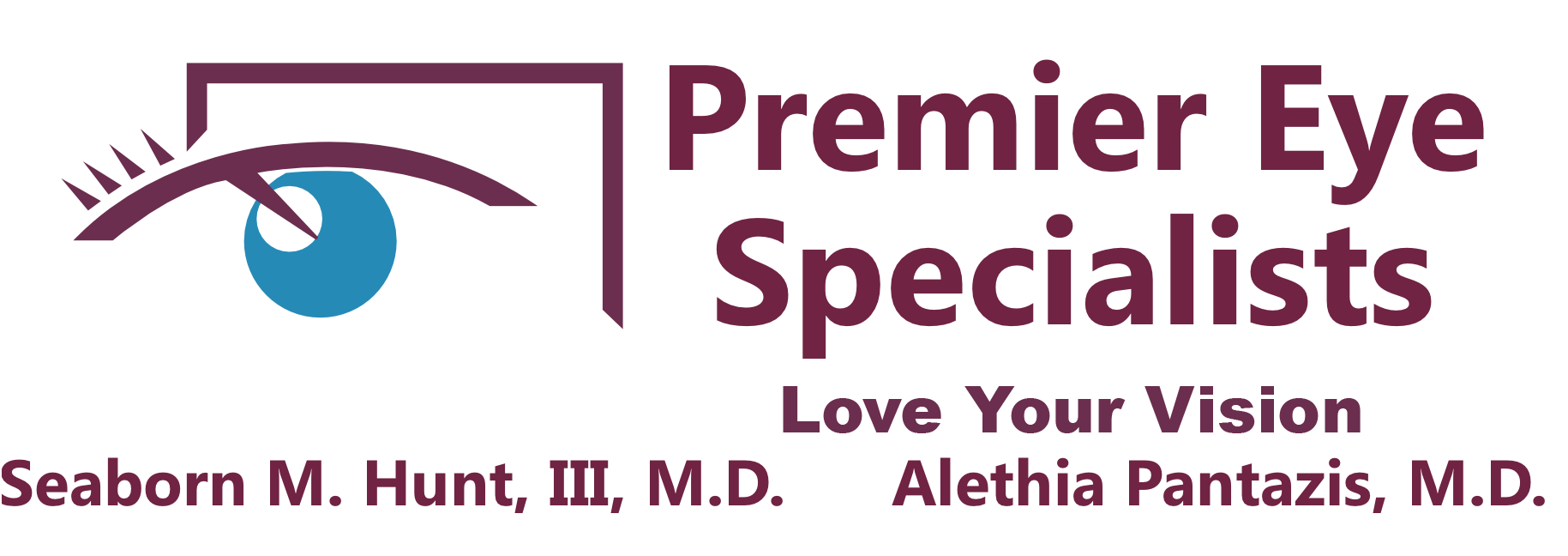Eye Care Exams for The Villages & Ocala, FL Areas
A comprehensive eye care exam usually takes about an hour, and is a simple and comfortable process. Usually, both a staff member and a doctor take part in the testing, depending on the exam portion.
The Importance of Regular Eye Care Exams
Whether you have glasses or 20/20 vision, you must schedule yearly eye care exams. Eye diseases are very common and often go unnoticed. Regular eye care exams will help detect eye diseases early and allow your optometrist to develop a treatment plan to prevent vision problems. Seaborn M Hunt III MD proudly provides eye care exams to ensure you have clear vision and healthy eyes. We will conduct yearly eye care exams and monitor your vision and eye health, and if anything changes over time, we will determine the best treatment plan for you and your eyes.
Comprehensive Eye Care Exams Include:
- Discussing Your Medical History:
First things first: our eye doctor will ask you about your vision and general health. This will include questions about your family's medical history, what medications you currently are on, and whether you wear corrective lenses already.
- Checking Your Visual Acuity:
When people think of the eye doctor, they think of the visual acuity test. This includes reading an eye chart and using one eye at a time. This determines how well you can see at various distances.
- Determining Your Prescription:
A device called a phoropter, which contains different lenses, is used to determine your prescription. During this test, the doctor will change the lenses and ask you to read an eye chart, concluding which prescription is best for you.
- Testing Your Pupils, Side Vision, & Eye Movement:
Our doctor will shine a bright light into your eyes, checking to see how your pupils respond. If your eyes do not respond to the light by getting smaller, this can be a sign of an underlying issue. Using this same flashlight, the doctor will ask you to follow a series of directions that test your eye's movement and peripheral vision. Checking that your eyes are aligned and functioning properly ensures your eye muscles are working like they should.
- Measuring Your Eye Pressure:
The tonometry test utilizes a machine that involves a quick puff of air into your eye. This gentle procedure tests the pressure in your eye, with elevated levels indicating glaucoma.
- Checking the Front Part of Your Eye:
Using a slit-lamp microscope, our doctor will light up the front part of your eye to examine the eyelids, cornea, iris, and lens. This test checks for any scars or scratches on your cornea, and for cataracts.
- Examining Your Retina & Optic Nerve: Dilating eye drops are placed in the eye to widen your pupil. This allows the doctor to examine your retina and optic nerve, checking for signs of damage or disease. This test may cause sensitivity to light for a few hours.
How to Prepare for Your Next Eye Care Exam
Making sure that you are properly prepared for your next eye care exam is the best way to ensure that your appointment is conducted smoothly and efficiently. There are several ways to ensure that you are ready, helping yourself and your doctor get the most out of your exam.
- Make Sure Your ID & Insurance are Up-to-Date: If you are planning on using insurance to pay for the exam, bring a copy of your insurance card as well as a photo ID to verify your coverage on the day of your appointment. This helps get you checked in and out more efficiently.
- Keep a Record of Your Symptoms: If you're experiencing headaches, blurred vision, poor depth perception, light sensitivity, or other potential eye problems, keep a record of your symptoms. Write down the time and frequency of each occurrence, as well as any other relevant information.
- Know Your Family History: Many eye conditions such as cataracts, glaucoma, and macular degeneration can be hereditary. Before your eye care exam, ask your parents, siblings, and grandparents about their ocular health history. This helps us evaluate your risk for eye diseases and develop a treatment plan accordingly.
- Bring Your Existing Glasses: By evaluating your current eyewear, we can more easily assess how your current prescription is working and make adjustments as necessary.
- Write Down Questions: If you have any questions for your eye doctor, write them down so you remember to ask during your eye care exam. We'll be happy to address any questions or concerns you might have.
Contact Us Today to Schedule an Appointment for Your Eye Care Exam!
The testing done during your eye exam is crucial to maintaining your optical health. Early detection can make a huge difference when it comes to the longevity and clearness of your vision. Each part of the comprehensive eye exam provides the necessary information needed to ensure your eyes are in proper working order. Count on Seaborn M Hunt III MD when you need a reliable eye care exam! Our services extend to clients throughout The Villages and Ocala, FL areas.
Give us a call today to schedule your next eye care exam.

